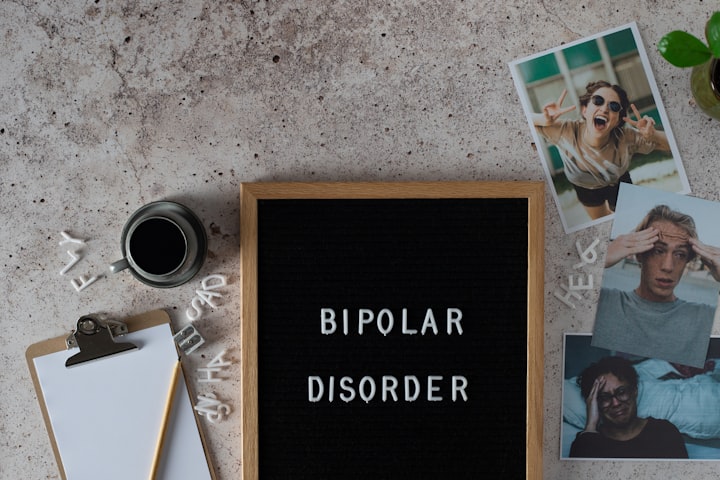Effective Treatments for Mood Disorders: Medication, Psychotherapy, and More
Effective Treatments for Mood Disorders: Medication, Psychotherapy, and More

Mood disorders, also known as affective disorders, are a group of mental illnesses characterized by intense and persistent changes in mood. These changes in mood can range from feeling extremely sad or hopeless to feeling overly happy or euphoric. Mood disorders can significantly impact a person's daily life and can make it challenging to manage their emotions and behavior.
There are several different types of mood disorders, including major depressive disorder, bipolar disorder, and seasonal affective disorder. While the causes of mood disorders are not fully understood, it is believed that a combination of genetic, environmental, and psychological factors may contribute to their development.
Fortunately, there are several effective treatments available for mood disorders that can help individuals manage their symptoms and improve their quality of life. In this article, we will explore some of the most common treatments for mood disorders.
Medication
One of the most common treatments for mood disorders is medication. There are several different types of medications that may be prescribed, depending on the specific type of mood disorder and the individual's symptoms. Antidepressants are commonly prescribed for major depressive disorder, while mood stabilizers are used to treat bipolar disorder.
Antidepressants work by increasing the levels of certain neurotransmitters in the brain, such as serotonin and norepinephrine, which are known to regulate mood. They can take several weeks to start working, and it is important to continue taking them as prescribed, even if symptoms improve.
Mood stabilizers, on the other hand, are used to manage the extreme mood swings associated with bipolar disorder. These medications can help stabilize the highs and lows, preventing episodes of mania or depression. Lithium is a common mood stabilizer, but there are also several other options available.
It is important to note that medication is not a one-size-fits-all solution, and it may take some trial and error to find the right medication and dosage that works for each individual. It is also essential to work closely with a healthcare provider to monitor any potential side effects and adjust the treatment plan as needed.
Psychotherapy
Psychotherapy, also known as talk therapy, is another effective treatment for mood disorders. This type of therapy involves talking with a mental health professional about thoughts, feelings, and behaviors that may be contributing to mood disturbances.
Cognitive-behavioral therapy (CBT) is a type of psychotherapy that is commonly used to treat mood disorders. This therapy focuses on identifying and changing negative thought patterns and behaviors that can contribute to depression or anxiety. CBT is typically a short-term therapy that can be completed in a few months, but it can have long-lasting benefits.
Interpersonal therapy (IPT) is another type of psychotherapy that can be helpful for mood disorders. This therapy focuses on improving relationships and communication skills, which can be a significant source of stress for individuals with mood disorders.
Other types of psychotherapy that may be beneficial for mood disorders include psychodynamic therapy, which explores the root causes of emotional issues, and mindfulness-based therapy, which involves practicing mindfulness techniques to reduce stress and improve emotional regulation.
Lifestyle Changes
In addition to medication and therapy, making lifestyle changes can also be helpful in managing mood disorders. These changes can include:
Regular exercise: Exercise has been shown to be an effective treatment for depression and anxiety. It can help boost mood and reduce stress.
Healthy eating: A balanced diet that includes plenty of fruits, vegetables, and lean proteins can help improve mood and energy levels.
Getting enough sleep: Sleep is essential for overall health and well-being. It is recommended that adults get 7-8 hours of sleep each night.
Avoiding alcohol and drugs: Substance abuse can exacerbate mood disorders and make symptoms worse.
Engaging in enjoyable activities: Participating in activities that bring pleasure and enjoyment can help boost mood and reduce stress. This can include hobbies, spending time with loved ones, or trying new things.
Seeking support: It is essential to have a strong support system when dealing with mood disorders. This can include family, friends, or support groups.
Complementary and Alternative Therapies
Complementary and alternative therapies, such as acupuncture, massage, and herbal supplements, can also be used in conjunction with traditional treatments for mood disorders. While there is limited scientific evidence to support the effectiveness of these therapies, many individuals find them helpful in managing their symptoms.
Acupuncture is a traditional Chinese medicine technique that involves the insertion of thin needles into specific points on the body. Some studies suggest that acupuncture may be helpful in treating depression and anxiety.
Massage therapy involves the manipulation of soft tissues in the body to promote relaxation and reduce stress. It can be helpful in managing symptoms of anxiety and depression.
Herbal supplements, such as St. John's wort and omega-3 fatty acids, have also been studied for their potential benefits in treating mood disorders. However, it is important to consult with a healthcare provider before taking any supplements, as they may interact with other medications.





Comments
There are no comments for this story
Be the first to respond and start the conversation.